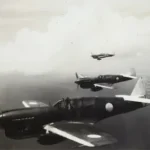- Dreams about nuclear war serve as metaphors for our inner conflicts and struggles, reflecting our battle between desires and responsibilities.
- These dreams can be triggered by anxiety and provide a safe space for us to process fears and anxieties related to personal experiences or exposure to media reports.
- Dreams play a crucial role in confronting and making sense of our fears and uncertainties, offering valuable insights into our subconscious and aiding in personal growth and self-discovery.
- In interpreting nuclear war dreams, it is important to consider the symbolism of key elements such as the bomb, fallout shelters, and emotional reactions within the dream.
Dreams about nuclear war can be unsettling, yet they offer valuable insights into our subconscious thoughts and emotions. It is important to explore the symbolism and interpretations of these dreams for a deeper understanding of our psyche and the world around us. Let’s dive into the topic of nuclear war dreams together.
Psychological Perspective of Nuclear War Dreams

Dreams have long been regarded as a window into our subconscious minds, providing insights into our deepest fears, desires, and anxieties. One particular type of dream that often perplexes and disturbs us is the dream of a nuclear war. In this section, we will explore the psychological perspective of these dreams, delving into their underlying meanings and the emotions they evoke.
2. Relation of war dreams to inner conflicts and struggles:
Dreams about war, including those centered around nuclear conflicts, can be seen as a manifestation of our inner conflicts and struggles. They serve as metaphors for the battles we face within ourselves on a daily basis. Just like in the dream, where opposing sides fight for supremacy, we often find ourselves torn between our wants and needs, our desires and responsibilities.
For example, a person who dreams about a nuclear war while going through a tumultuous relationship may be grappling with conflicting emotions. They may be torn between their desire for love and the fear of getting hurt. The dream serves as a reflection of the emotional battle they are experiencing, as they try to navigate the complexities of their relationship.
3. Anxiety as a trigger for nuclear war dreams:
Anxiety is another common trigger for nuclear war dreams. In a world filled with uncertainty and conflict, it is natural for our minds to create scenarios that reflect these concerns. Dreams provide a safe space for us to explore and process these fears, allowing us to gain a deeper understanding of ourselves and our emotions.
For instance, individuals who live in regions plagued by political tension or who have experienced traumatic events may have recurring dreams about nuclear attacks. These dreams can be seen as a manifestation of their deep-seated fears and anxieties arising from their personal experiences or exposure to media reports. The dream serves as an outlet for these anxieties to be acknowledged and processed.
4. Importance of dreams in dealing with fears and uncertainties:
Dreams play a crucial role in our psychological well-being, offering a platform for us to confront and make sense of our fears and uncertainties. When we dream of a nuclear war, it can be an indication that we are grappling with existential questions and concerns about the state of the world.
By paying attention to the details and emotions in our dreams, we can gain valuable insights into our inner selves. Dreams allow us to explore our deepest fears, desires, and anxieties, enabling us to confront and work through these emotions in a safe and controlled environment. In this way, dreams can serve as a powerful tool for personal growth and self-discovery.
5. Navigating the complexities of nuclear war dreams:
When it comes to interpreting nuclear war dreams, it is important to consider the various symbols and elements that appear in the dream. The bomb itself represents both destruction and transformation. It signifies the potential for catastrophic loss and devastation, but it also holds the promise of new beginnings and personal growth.
Fallout shelters or bunkers, on the other hand, symbolize a desire for safety and protection. They reflect our instinctual drive for self-preservation in the face of impending doom. The presence of these symbols in the dream may indicate underlying fears of being unable to protect ourselves or our loved ones from the destructive forces of war.
In navigating the complexities of nuclear war dreams, it is crucial to pay attention to our emotional state within the dream. Are we terrified or calm? By examining our emotional reactions, we can gain insight into how we are processing our fears and anxieties in waking life.
Symbolism in Nuclear War Dreams

Dreams are a window to our subconscious mind, offering unique insights into our innermost fears and desires. One recurring theme that often captivates dreamers is nuclear war. These dreams are rich in symbolism, reflecting the complex emotions and concerns associated with conflict, destruction, and the need for safety and protection.
1. The Bomb: Destruction and Transformation
In nuclear war dreams, the bomb itself is a powerful symbol that represents both destruction and transformation. When we see a bomb in our dreams, it evokes feelings of fear, helplessness, and despair. The explosive and devastating nature of the bomb serves as a stark reminder of the horrors of war and the potential for unimaginable suffering.
On the other hand, the bomb can also symbolize a desire for change or a need for personal transformation. Just as a bomb can obliterate everything in its path, it can also pave the way for new beginnings. In this context, nuclear war dreams can serve as a wake-up call, urging us to examine our lives and make positive changes. These dreams encourage personal growth and transformation instead of succumbing to the destruction depicted.
2. Fallout Shelters and Bunkers: Safety and Protection
Another common symbol in nuclear war dreams is the presence of fallout shelters or bunkers. These underground structures represent our instinctual drive for safety and protection in the face of impending doom. When we dream of seeking shelter in these havens, it reflects our deep-seated fear and anxiety about being unable to escape the consequences of a nuclear confrontation.
Fallout shelters and bunkers also symbolize a longing for security and stability in an uncertain world. In the chaos of war, these structures offer tangible solutions to the fear and anxiety associated with nuclear devastation. They provide a glimmer of hope amidst the turmoil, suggesting that there is a way to shield ourselves from the horrors of the outside world.
3. Personal Experiences and Media Influences
The imagery and scenarios that unfold in nuclear war dreams can be influenced by our personal experiences and the media we consume. News reports, movies, and documentaries often depict the devastation of war, leaving a lasting impression on our subconscious. These visual representations find their way into our dreams, creating vivid and emotionally charged scenarios that reflect our deepest fears and concerns.
For example, if we have had direct or indirect exposure to traumatic events or conflicts, these experiences may manifest in our dreams of nuclear war. Our minds use these dreams as a means to process and cope with underlying anxieties and emotions.
Similarly, the anxieties and uncertainties of our world can also influence the symbolism in nuclear war dreams. Global events, political tensions, and the specter of mass destruction seep into our collective consciousness, shaping the dreamscape. Dreams provide a safe space for us to explore and make sense of these fears, inviting us to confront and understand them on a deeper level.
4. Other Symbols in Nuclear War Dreams
In addition to the bomb, fallout shelters, and bunkers, there may be other symbols present in nuclear war dreams that reflect individual experiences and concerns. Here are a few examples:
- Planes flying overhead
Symbolizes a sense of impending danger and the fear of being caught in the crossfire. - Running for safety
Represents the instinctual drive to protect oneself from harm. - Post-apocalyptic wasteland
Signifies concerns about a fragile society, scarcity of resources, and an uncertain future. - Escaping the blast
Reflects the need to confront and overcome overwhelming challenges or difficult situations in waking life.
The interpretation of these symbols is highly personal and unique to each individual. By keeping a dream journal and reflecting on recurring symbols, patterns, and emotions, one can gain valuable insights into their own subconscious mind.
5. Embracing Personal Growth and Self-Discovery
Nuclear war dreams, while unsettling, offer an opportunity for personal growth and self-discovery. They invite us to explore our deepest fears, desires, and anxieties, while mirroring the collective concerns of our world. By unraveling the symbolism within these dreams, we can gain a clearer understanding of ourselves and the world around us.
Interpreting Nuclear War Dreams

Dreams have long intrigued and fascinated us, providing a window into our subconscious minds and revealing hidden desires, fears, and anxieties. One particular type of dream that captivates many individuals is the dream about nuclear war. In this article, we will delve into the realm of dreams and explore the meanings behind these unsettling visions.
1. Understanding Dreams and Their Meanings
Before we explore the specifics of nuclear war dreams, it is important to understand the science behind dreams and the common themes they encompass.
Dreams as a Reflection of Personal Experiences: Dreams are deeply personal experiences that often reflect our unique perspectives, emotions, and memories. Each individual brings their own set of life experiences, fears, and hopes to their dreams, shaping the symbolism and meaning of their dreams.
Individual Interpretation Based on Personal Experiences: The interpretation of a dream can vary based on an individual’s personal experiences and associations. Symbols can carry different meanings for different individuals, influenced by their cultural backgrounds and personal beliefs.
Recurring Themes as an Indication of Unresolved Issues: Dreams often feature recurring themes that reflect universal human experiences. These themes may symbolize underlying anxieties, conflicts, or unresolved issues in our lives. They serve as metaphors for our deepest fears, desires, and insecurities, inviting us to confront and understand them.
2. Interpreting Nuclear War Dreams
Nuclear war dreams carry powerful symbolism that can evoke a wide range of emotions and interpretations. The dreamer’s personal experiences and associations play a crucial role in deciphering the meaning behind these dreams. Here are some key points to consider when interpreting nuclear war dreams:
- Understanding Symbolism
Dreams use symbolism to convey messages from our subconscious minds. When interpreting nuclear war dreams, it is essential to explore the meanings behind key symbols such as the bomb, fallout shelters or bunkers. - The bomb can represent both destruction and transformation. It signifies the potential for devastating loss and suffering, but it can also symbolize a desire for change or personal growth.
- Fallout shelters or bunkers often reflect a desire for safety and protection in the face of impending doom. They can also represent underlying fears and anxieties about being unable to shield oneself or loved ones from the destructive forces of war.
- Individual Interpretation
Individual experiences and beliefs shape the interpretation of dreams. Dreamers should reflect on their own personal associations with nuclear war, such as fears, concerns, or experiences related to conflicts or global events. - Recurring Symbols and Themes
Keeping a dream journal and noting recurring symbols or themes can provide valuable insights into the meaning of nuclear war dreams. Reviewing these patterns over time can help identify underlying fears, anxieties, or unresolved issues that may require attention and resolution. - Emotional Response
Paying attention to the emotional response during a nuclear war dream can offer insights into its meaning. Strong emotions such as fear, helplessness, despair, or even a glimmer of hope can provide valuable clues about the dream’s significance. - Personal Reflection
Exploring the meaning of nuclear war dreams requires personal reflection and introspection. The dreamer should consider how the dream relates to their waking life experiences, relationships, and emotions. This self-reflection can provide valuable insights into their inner selves, paving the way for personal growth and self-discovery.
3. Case Studies: Interpreting Nuclear War Dreams
To further illustrate the process of interpreting nuclear war dreams, let’s explore two hypothetical case studies:
Case Study 1: Escaping the Blast
Dream Description: Sarah dreams that she is desperately trying to escape an imminent nuclear explosion. She is running through chaotic landscapes, seeking shelter as the destructive force draws near.
Interpretation: Sarah’s dream may symbolize her need to confront and overcome overwhelming challenges in her life. The chaotic landscapes and her desperate search for shelter reflect the stress and pressure she feels in her waking life. The dream urges her to find a path of escape from difficult situations and confront the obstacles that are holding her back.
Case Study 2: Surviving in a Post-Apocalyptic World
Dream Description: John dreams of navigating a post-apocalyptic wasteland after a nuclear war. He faces a world devoid of civilization, grappling with scarcity and survival.
Interpretation: John’s dream may reflect his concerns about the fragility of society and fears about facing an uncertain future. The post-apocalyptic wasteland symbolizes his anxieties about resource depletion, societal collapse, or personal turmoil. The dream encourages him to acknowledge these concerns and explore strategies for building resilience in the face of adversity.
Cultural and Religious Interpretations

Dreams about nuclear war can have different meanings depending on a person’s cultural background and religious beliefs. These interpretations provide insight into how individuals from different cultures and religions perceive and interpret these dreams. Here are some possible cultural and religious interpretations of nuclear war dreams:
1. Influence of Cultural Background on Dream Symbolism
Influence of Cultural Background on Dream Symbolism
One’s cultural background plays a significant role in shaping their perception of dream symbolism, including dreams about nuclear war. Different cultures may have unique symbols, beliefs, and historical events that influence the interpretation of these dreams.
For example:
- In Japan, where the horrors of nuclear war were experienced firsthand through the bombings of Hiroshima and Nagasaki, dreams about nuclear war may be seen as a reminder of the devastating consequences of war. These dreams may symbolize fears, anxieties, and collective trauma related to nuclear weapons.
- In the United States, where the Cold War era heightened fears of nuclear war, these dreams may reflect concerns about geopolitical tensions, international conflicts, and the potential for global catastrophe. The symbolism of nuclear war in these dreams can be deeply ingrained in American culture.
2. Spiritual or Divine Messages Embedded in Dreams
Some individuals believe that dreams carry spiritual or divine messages. They view their dreams as a means for the subconscious mind to communicate valuable insights or warnings. This perspective often applies to dreams about significant events or crises such as nuclear war.
For example:
- In some spiritual traditions, dreams about nuclear war may be interpreted as a call to raise awareness about global issues or to promote peace and harmony. The dream may serve as a reminder to take action and work towards creating a more peaceful world.
- For those who follow spiritual teachings that focus on inner transformation, dreams about nuclear war may symbolize an opportunity for personal growth and change. The destruction depicted in the dream could represent the need to let go of destructive habits, emotions, or beliefs in order to embrace a more positive and enlightened path.
3. Possible Religious Interpretations Based on Doctrines and Beliefs
Religious beliefs often influence the interpretation of dreams, including those about nuclear war. Different religious traditions may offer specific frameworks for understanding the symbolism and messages embedded in these dreams.
For example:
- In Christianity, dreams about nuclear war may be seen as signs of the end times and the impending judgment day. Believers may interpret these dreams as warnings to repent, seek divine intervention, or prepare for the coming apocalypse.
- In Buddhism, dreams are generally seen as reflections of one’s inner thoughts and emotions. Dreams about nuclear war may be seen as reminders of the impermanence of life and the need to let go of attachment to worldly possessions and desires.
- Hinduism views dreams as a way for divine beings to communicate with individuals. Dreams about nuclear war may be interpreted as messages from deities, urging the dreamer to take action to prevent or mitigate potential disasters. These dreams may also signify the need for self-reflection and spiritual growth.
4. Personal Reflection and Interpretation
While cultural and religious interpretations can provide valuable insights into the meaning of nuclear war dreams, it is essential to remember that each individual’s interpretation ultimately depends on their personal experiences, beliefs, and emotions. It is crucial for the dreamer to reflect on their own feelings and thoughts surrounding the dream in order to gain deeper understanding and clarity.
Conclusion
Remember that while nuclear war dreams may be unsettling, they can also offer valuable insights into our deepest fears and desires. Take the time to reflect on the key symbolisms within your dream and consider how they relate to your personal experiences and emotions. Don’t be afraid to seek support or guidance in processing any anxieties or fears that may have surfaced through these dreams. Whether through therapy, meditation, or simply talking to someone you trust, addressing these fears can be a crucial step in personal growth and self-discovery. Remember, you are not alone, and your dreams can serve as a valuable tool in understanding yourself and navigating the complexities of the human experience.










Leave a Reply